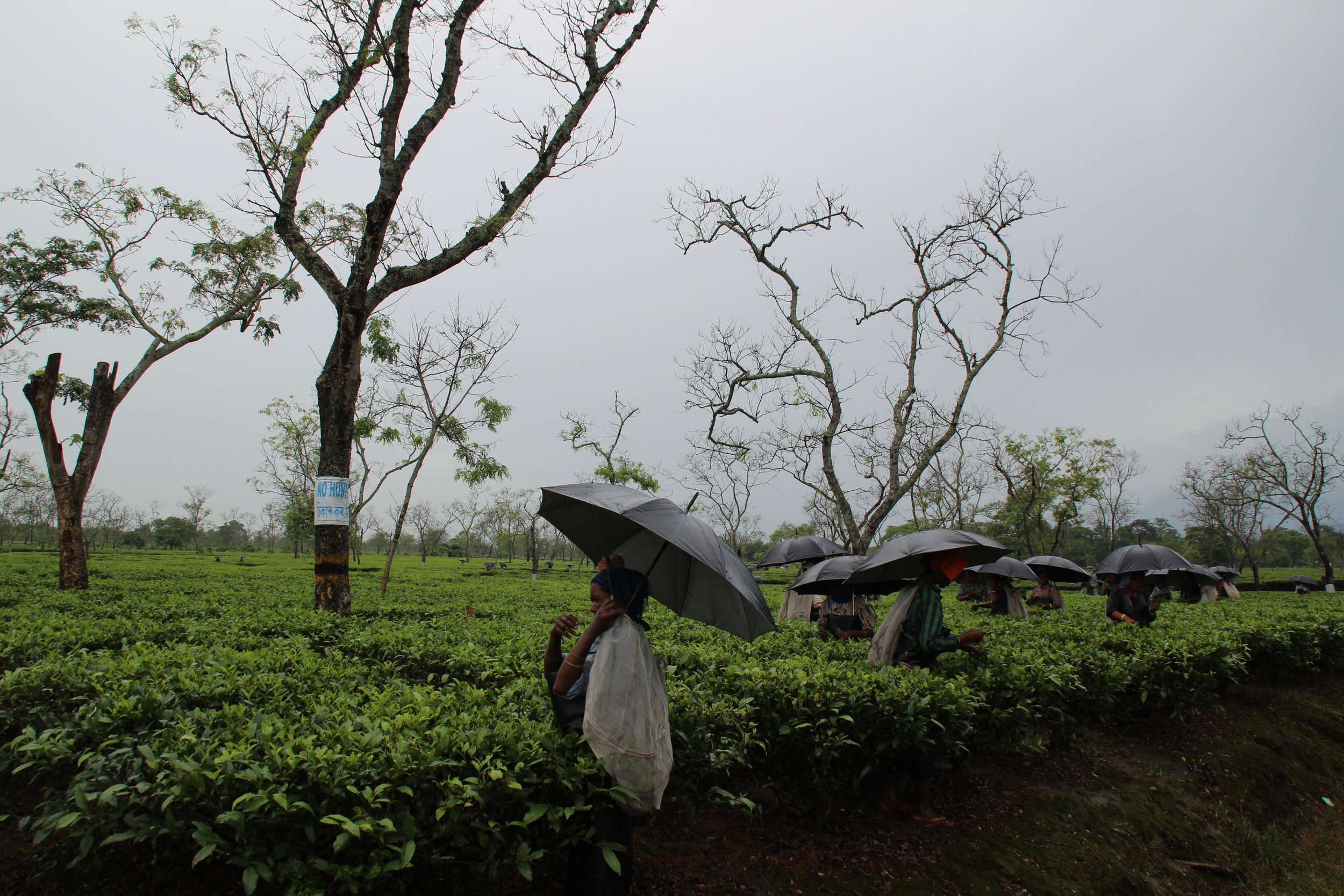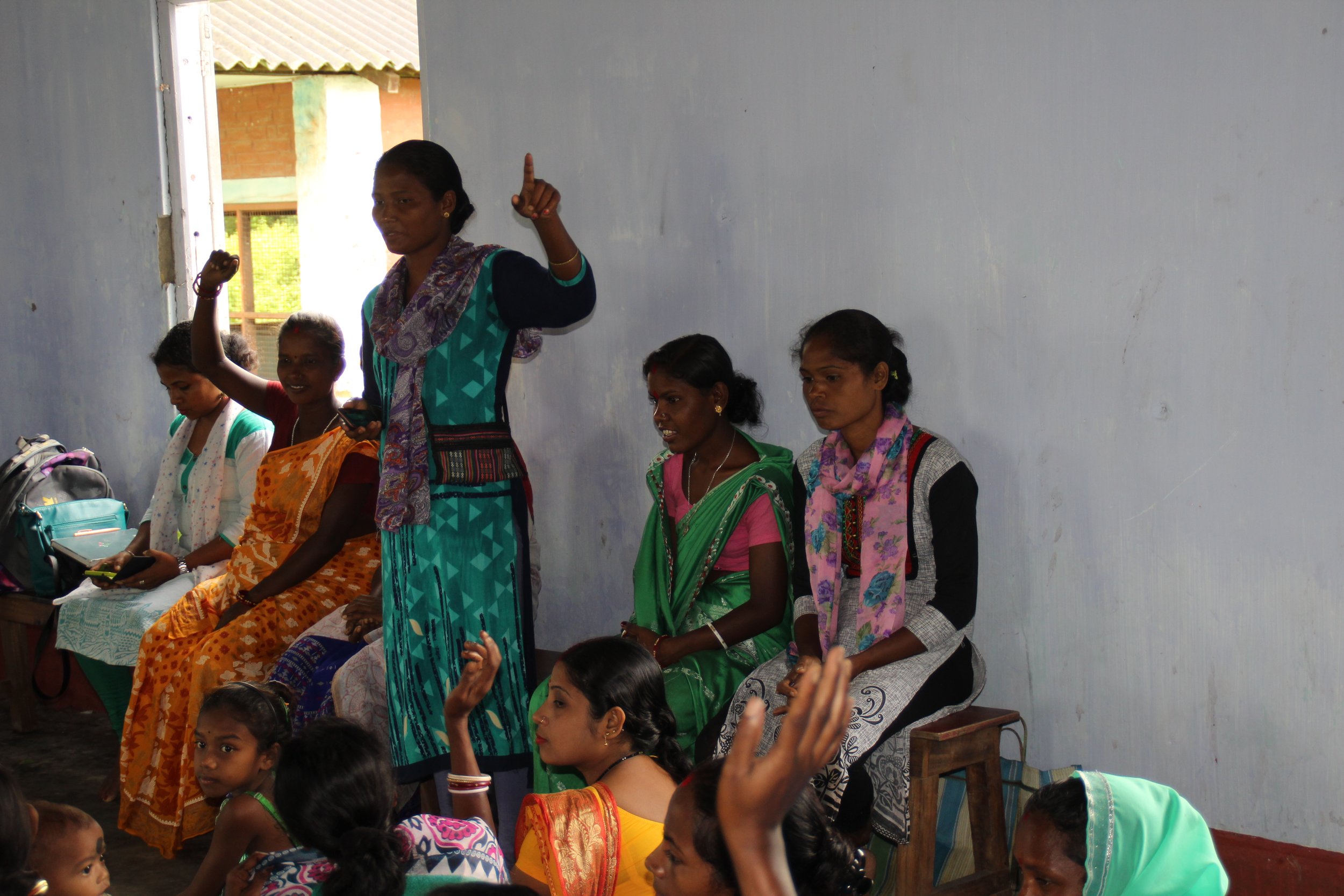



Where We Work
Despite the rapid development in South Asian region, millions of people continue to live in poverty and are subjected to extreme exploitation and marginalization. Therefore, Nazdeek partners with grassroots organizations to address the lack of access to wellbeing, with a focus on those most marginalized. Our core focus areas of work are safe motherhood, food security, and adequate housing.
-
Bangladesh is one of the highest tea-producing countries in South Asia. Over a million workers—majority of whom are indigenous women—do not reap the benefits of the fast-growing industry. Tea work in Bangladesh has long been plagued by poor working conditions and extreme discrimination against workers on the basis of their identities. Women suffer tremendous amounts of indignity due to hard labor without rest, low pay, lack of maternal healthcare and little to no provision of basic health facilities, and prevalence of sexual harassment at the workplace. Workers collectively lack clean drinking water within the plantations, poor sanitation, and poor access to grievance redressal mechanisms. A severe lack of wages continues to be a rampant problem throughout the industry in Bangladesh.
It is in this context that a scoping study was conducted with local organizations working towards the welfare of tea workers, with the aim of identifying areas for collaboration. This is now being followed up with a feasibility and assessment study among Bangladeshi tea workers. The study’s aim is to generate knowledge resources that can be disseminated to tea workers. This would then enhance their knowledge about benefits and entitlements applicable to them, thereby making accessibility easier and ensuring their wellbeing.
-
In India, Nazdeek partners with organizations that are working on a myriad of issues. We support organizations that work on safe motherhood, which includes ensuring access to government entitlements and benefits for pregnant and lactating women and empowering communities for their overall wellbeing.
Furthermore, we support grantee organizations in advancing the rights of workers in the tea and the textile and garment industry. Our focus is on supporting them in enhancing their access to government entitlements and healthcare benefits across Assam, Tamil Nadu, Kerala, and West Bengal.
-
Nepal’s tea industry started in the late 1800s, and although there were only two plantations then, today, tea is a growing business. The tea industry, albeit producing profitable amounts of tea, does not safeguard its workers or support them in living with dignity.
Tea plantations lack critical healthcare services for workers, and women workers are not given maternity leaves. The workers are also overworked, and their labor does not reflect in their wages. Moreover, workers are dependent on their employers for housing, food, water, and sanitation. A scoping study was carried out to document workers’ conditions in the tea plantations of Ilam and Jhapa districts. Nazdeek hopes to build solidarity with community and worker-led organizations within Nepal and support their initiatives.
-
Sri Lanka’s tea plantations have historically been a space of oppression and ostracization for workers. Today, workers continue to face extreme discrimination on the basis of their identities, as well as violation of their rights as workers and citizens. This has led to systemic oppression and ostracization of workers, especially women—who form a major portion of the workforce.
The tea plantations in Sri Lanka have had a longstanding history of worker-led initiatives and movements. Nazdeek, along with a local organization, conducted a scoping study that explored the mismanagement of tea plantations and workers’ poor conditions across Hatton, Kandy, and Colombo. It was found that along with unfair wages, some workers are obstructed from owning land and have poor access to living quarters. In addition, workers do not have access to quality education for their children, adequate food and nutrition, safe motherhood, and clean water within the plantations.
Our Work
How We Work
Donate Now



